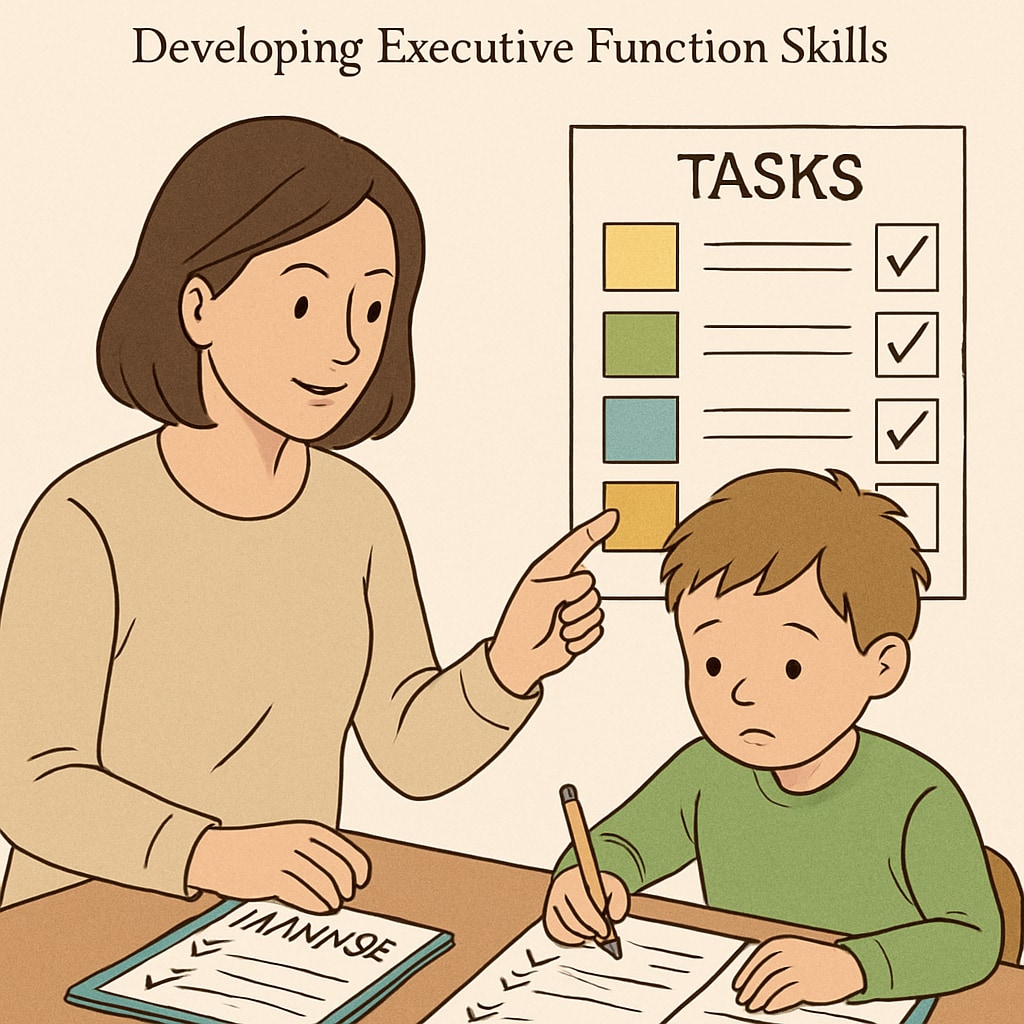Supporting children with ADHD, autism, and other special needs requires a focus on executive function development and effective parental guidance. Executive function (a set of cognitive skills that includes working memory, flexible thinking, and self-control) plays a pivotal role in helping children manage their emotions, complete tasks, and interact socially. In this article, we will explore practical strategies for fostering executive function and empowering parents with tools to support their children’s growth.
Understanding Executive Function in Special Needs Children
Executive function challenges are common among children with ADHD and autism. These challenges may manifest as difficulties in planning, organizing, and regulating emotions. For example, a child with ADHD might struggle to focus on homework, while a child with autism may exhibit rigid thinking patterns that hinder problem-solving. Addressing these challenges involves targeted skill-building and consistent parental support.
Some key areas of executive function development include:
- Working memory: Enhancing the ability to retain and use information.
- Inhibitory control: Improving impulse management and self-regulation.
- Cognitive flexibility: Encouraging adaptability and creative thinking.

Practical Strategies for Executive Function Development
Parents can play a critical role in nurturing their child’s executive function skills. Here are some evidence-based strategies:
- Establish routines: Consistent daily schedules help children predict and prepare for activities, reducing anxiety and promoting organization.
- Use visual aids: Charts, calendars, and checklists can simplify task management and enhance understanding.
- Break tasks into smaller steps: Dividing complex tasks into manageable parts prevents overwhelm and builds confidence.
- Practice mindfulness: Techniques like deep breathing and guided meditation can improve focus and emotional regulation.
- Encourage self-monitoring: Teaching children to reflect on their progress fosters independence and accountability.
For additional guidance on executive function, you can explore resources like Executive Functions on Wikipedia.

Parental Support: Building Emotional Resilience
Emotional regulation is another crucial aspect of executive function. Children with special needs often face heightened emotional responses, which can impact their ability to learn and interact. Parents can help by:
- Modeling calm behavior: Demonstrating patience and composure teaches children how to manage their emotions effectively.
- Validating feelings: Acknowledging a child’s emotions fosters trust and encourages open communication.
- Using positive reinforcement: Rewarding effort and progress builds motivation and self-esteem.
- Creating a safe space: Designating a quiet area for relaxation can help children decompress and regain focus.
In addition, organizations like Britannica’s ADHD Overview provide valuable insights into managing emotional challenges.
Empowering Parents: Seeking Support and Collaboration
Raising a child with special needs can be overwhelming, but parents do not have to face these challenges alone. Building a support network is vital for both the child and the family. Here are some steps parents can take:
- Connect with professionals: Work closely with therapists, educators, and medical experts to tailor strategies to your child’s unique needs.
- Join support groups: Sharing experiences with other parents can provide emotional relief and practical advice.
- Educate yourself: Stay informed about your child’s condition to advocate effectively for their needs.
- Set realistic expectations: Celebrate small victories and recognize that progress takes time.
Ultimately, the goal is to create an environment where children feel understood, supported, and capable of achieving their potential.
Readability guidance: Use short paragraphs and lists to summarize key points; avoid excessive jargon. Incorporate transition words such as “however,” “in addition,” and “as a result” to enhance flow.


